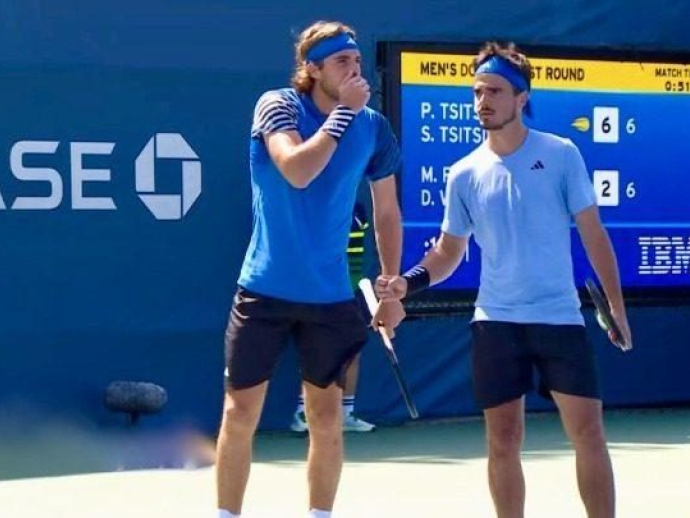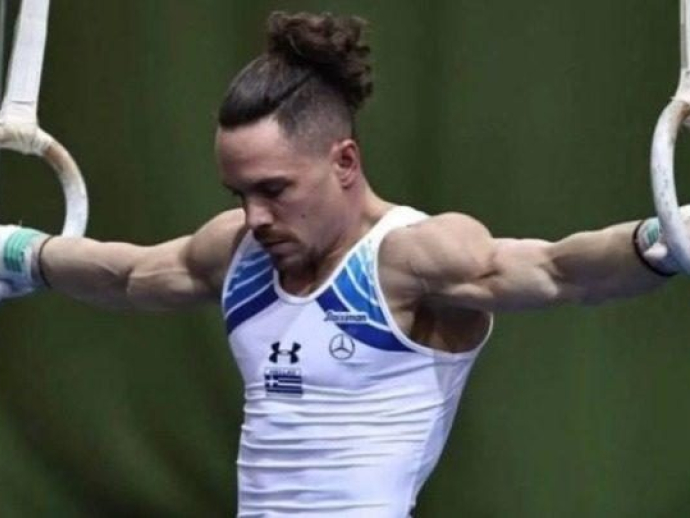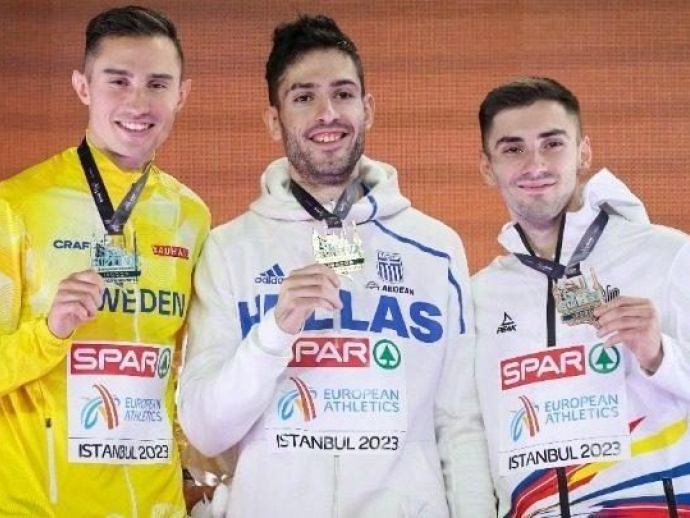Turkey's Erdogan calls for reinforced trust before trip to Greece
Erdogan and Greek Prime Minister Kyriakos Mitsotakis will oversee joint Cabinet talks and trade consultations. A series of cooperation deals will be signed as part of a so-called “positive agenda,” aimed at bypassing long-standing and often volatile disputes.
After years of tension and a looming risk of military confrontation, the NATO allies are seeking to rebuild trust and deliver a timely message of cooperation in the troubled eastern Mediterranean.
“There is no problem we cannot solve through dialogue based on mutual goodwill,” Erdogan told Kathimerini newspaper in an interview, a day before the two countries’ fifth High-level Cooperation Council (HCC) in Athens.
The neighbours and NATO allies have been at odds for decades over issues including where their continental shelves start and end, energy resources, overflights of the Aegean Sea, and ethnically split Cyprus. They reached the brink of war in the 1990s.
Erdogan and Greek Prime Minister Kyriakos Mitsotakis agreed in July to resume talks and confidence-building measures as they hailed a new, “positive climate” in ties after more than a year of tensions over energy resources and defence issues.
Erdogan, who is due to meet Mitsotakis on Thursday, said that Turkey was honestly trying to resolve its differences with Greece and that Greece had realised that Turkey would never reject an extended hand of friendship.
“I will tell him, Kyriakos, my friend, we don’t threaten you if you don’t threaten us,” Erdogan told Kathimerini, adding that Athens and Ankara could solve their problems without foreign intervention.
He said cooperation could be enhanced in sectors including the economy, transport, energy and migration, where Turkey needed the support of the European Union, and that the renewed electoral mandate both leaders received this year could help the two countries make constructive progress.
WHY ARE THE TALKS HAPPENING NOW?
Erdogan and Mitsotakis, both re-elected this year, are respectively focused on the economy, with Greece on a growth spurt after a decade of financial turmoil and Turkey battling crippling inflation and shaky international investment.
“Of course, we have differences of opinion and there are deep issues that cannot be resolved at once. But there are chapters that can be solved immediately and can expand the basis for cooperation,” Erdogan said. “We will head to Athens with a win-win approach.”
Improved ties with Greece will also help Turkey repair strained relationships with the European Union and other Western allies.
AGREEMENT STARTS WITH MIGRATION
Mending fences with the EU will hinge on Turkey helping Europe fight illegal migration.
Ten members of Mitsotakis’ Cabinet will attend the bilateral meetings, most of them tasked to sign declarations and agreements of cooperation with their travelling Turkish counterparts.
Top of that list is a migration accord, establishing lines of communication between the coast guard agencies of the two countries, which operate in waters between the Turkish mainland and nearby Greek islands on favoured routes for illegal migration into the EU.
The issue remains a political priority in Europe as it heads toward EU-wide elections in June without major asylum reforms finalized. Turkey wants to relax travel restrictions for its citizens in Europe, including for holidays to Greek islands, and Athens has promised to help.
Turkey is the world’s leading host of refugees, with some 4 million.
WHY ARE GREECE AND TURKEY AT ODDS?
Turkey argues that Athens is using Greek islands that surround its coastline to claim an unfair share of maritime space and mineral rights, while Greece accuses its neighbour of trampling on international law — in what has been described as a frozen conflict.
The issue has brought the countries close to war on several occasions, the most recent flare-up occurring in 2020, and could eventually end up in international court.
On Erdogan’s previous visit to Athens in 2017, the two sides aired their long list of grievances during an awkward encounter on live television: the treatment of ethnic minorities and their religious freedoms, whether international treaties should be updated, and how to bring resolution to the war-divided island of Cyprus.
Since then, the list has grown. Greece said its neighbour was “weaponizing” migration and Ankara ominously claimed the sovereignty of eastern Greek islands could be disputed if they continued to militarize them.
DAY TRIP TO ATHENS
Erdogan has been harshly critical of the Israeli government over the war in Gaza, in contrast to Mitsotakis, who has repeatedly emphasized Greece’s friendship with Israel.
But the Turkish president’s trip on Thursday — only expected to last several hours — will be kept on a tight schedule. And Greek officials have already acknowledged signs of improved cooperation.
Dimitris Kairidis, the Greek minister for migration, said late Wednesday that the number of migrants arriving on Greece’s islands illegally had dropped by about 60% over the past two months thanks in large part to better coordination with Turkey’s coast guard.
“There was a time when the Turkish authorities did not react and let the boats through. Now the cooperation is much better,” Kairidis told state television.
“This is a working visit by (Erdogan) and I hope that over time, they will lose their extraordinary character and just become an ordinary exchange between two leaders,” he added.
(With inputs from agencies)













































































































































































































































































































































































































































































































































































































































